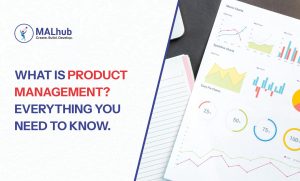As a data analyst, it’s a must to have strong technical skills. However, what separates successful data analysts from their colleagues is their soft skills—the interpersonal and cognitive abilities that influence how they work, communicate, and contribute to a company.
While mastering programming languages and analytical tools like Python, Excel, and Microsoft Power BI are important, employers seek candidates with strong soft skills. These skills are important for translating data into actionable insights, communicating findings effectively, and working collaboratively among the teams.
This article focuses on the top 10 soft skills every data analyst needs to stand out in their career. And also guides you on how to showcase these skills on your resume to boost your chances of getting hired.
Why Soft Skills Are Important for a Data Analyst?
Soft skills are a deciding factor in whether a candidate is hired for a data analyst role or not. Employers want data analysts who can go beyond just crunching numbers—they want professionals who can communicate findings clearly, work well in a team, adapt to change, and think about how data can solve business problems.
Here’s why soft skills matter in data analysis:
- Interpersonal Interaction: Analysts frequently need to explain complex data insights to stakeholders who might not have a technical background. Clear communication is key.
- Problem Solving: The ability to look at data from different angles and think creatively can lead to innovative solutions.
- Team Collaboration: Data analysts often work across departments, so being able to work well with others is important for project success.
Now, let’s explore the specific soft skills that can help you thrive as a data analyst.
What Are the Soft Skills Required for a Data Analyst Job?
1. Communication
The ability to communicate complex data insights to non-technical stakeholders is important. Whether it’s written reports or verbal presentations, your ability to break down technical jargon and explain the relevance of the data to decision-makers is what will make you indispensable.
2. Collaboration
Data analysts rarely work in isolation. They collaborate with other departments—such as marketing, finance, engineering, and operations—to gather data and deliver actionable insights. The ability to work seamlessly within a team is important to ensure that all objectives align and projects are completed efficiently.
3. Analytical Thinking
The ability to think critically and analyze data trends separates a good data analyst from a great one. This involves not only interpreting the data but also understanding its broader business implications and how it can drive strategic decisions.
4. Organizational Skills
Managing large datasets and multiple projects simultaneously requires strong organizational skills. Data analysts must keep track of various data sources, analysis tools, and deliverables, ensuring that everything stays on track and is completed on time.
5. Attention to Detail
When working with data, small mistakes can lead to inaccurate conclusions. Paying close attention to detail ensures that the data is accurate and reliable, which in turn builds trust with stakeholders.
6. Presentation Skills
The ability to present your findings in a clear form is important. If you’re showcasing data trends to senior management or explaining technical insights to a non-technical audience, strong presentation skills will ensure your message gets across effectively.
7. Continuous Learning
The field of data analysis is constantly changing, with new tools, techniques, and technologies emerging all the time. To stay ahead of the trends, you must be committed to continuous learning and professional development. Enrolling in courses such as those offered by MALhub can help you stay up-to-date with the latest industry data trends.
8. Work Ethics
Professionalism, integrity, and a strong work ethic are important attributes of a successful data analyst. Given that data is mostly sensitive, analysts need to demonstrate responsibility and ethical behaviour in their work.
9. Adaptability
In the dynamic world of data analysis, things can change quickly. Whether it’s adjusting to new tools, dealing with shifting project goals, or finding alternative solutions to problems, adaptability is important for success in this field.
10. Leadership Skills
Even if you’re not privileged to be in a managerial position, demonstrating leadership abilities can set you apart. Taking ownership of projects, guiding teammates, or mentoring junior analysts are examples of how leadership skills can be applied in a data analyst role.
For insights on getting started as a data analyst, check out How To Become a Data Analyst From Scratch
How to Include Data Analyst Skills on Your Resume
Once you’ve acquired these soft skills, the next step is to ensure they’re effectively presented on your resume. Here’s how to incorporate them strategically:
1. Highlight Soft Skills in the Summary Section
The resume summary or objective should serve as a snapshot of your key competencies. Mention both your technical abilities and relevant soft skills, such as:
“Experienced data analyst with a strong focus on analytical thinking, collaboration, and communication. Adept at turning complex datasets into actionable business insights and delivering clear, impactful presentations to stakeholders.”
This shows that you’re not only technically proficient but also bring valuable interpersonal skills to the table.
2. Use Keywords in Your Skills Section
Be sure to include relevant soft skills in your resume’s skills section, ensuring they are aligned with the job description. You can list key skills like:
– Communication
– Analytical Thinking
– Attention to Detail
– Collaboration
– Adaptability
Including these keywords will help to ensure your resume passes through any applicant tracking systems (ATS) that screen resumes for industrial-specific terms.
3. Incorporate Soft Skills in Your Work Experience
In the work experience section, provide concrete examples of how you applied these soft skills in past roles. For instance:
“Collaborated with marketing and sales teams to provide data-driven insights that improved customer segmentation strategies by 15%.”
This highlights both your collaborative and analytical thinking abilities.
4. Showcase Leadership and Organizational Skills
Even if you haven’t held a formal leadership role, mention any instances where you led projects or organized workflows:
“Led the automation of data collection processes, resulting in a 25% improvement in data accuracy and a reduction in manual workload.”
This emphasizes both leadership and organizational skills, which are highly valuable in the data analysis field.
5. Emphasize Continuous Learning
Employers love to see a commitment to growth and learning. Include any relevant certifications or courses, such as certification from MALhub Courses, to show you’re staying ahead in the field.
Wrapping Up
We’ve discussed the top 10 soft skills every data analyst needs to succeed in their role. From communication and collaboration to leadership and adaptability, mastering these skills will set you apart in this competitive field.
The data analysis industry offers abundant career opportunities. Whether you’re just starting or looking to elevate your skills, MALhub provides a range of courses designed to help you excel in the field of data analysis. Adding soft skills to your technical expertise will not only help you become a versatile data analyst but also significantly improve your chances of landing your dream job.
Start learning today and take the next step in your career.


















One Response
It is the best time to make a few plans for the longer term and it’s time to be happy. I have learn this put up and if I could I wish to suggest you some fascinating things or tips. Maybe you could write next articles referring to this article. I want to learn even more issues approximately it!